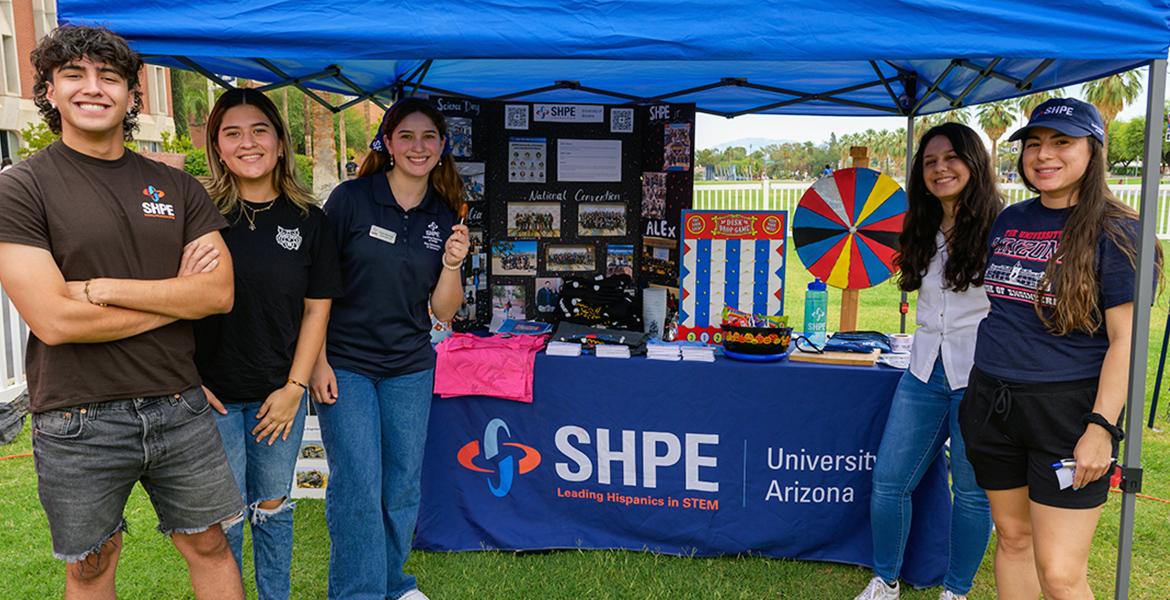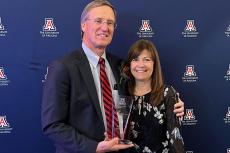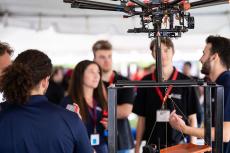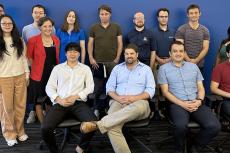Engineering Grows in Size, Diversity and Excellence
The college – looking to fill workforce gaps while increasing its population of students from underrepresented backgrounds – is making significant strides not only in enrollment growth but also in research expenditures, faculty hires and national rankings.
Engineering’s fall 2023 first-year class remained at all-time highs with 750 students. Students of color increased by 5% to 45%, and women rose from 30% to 33%. This exceeds the national average, where only 24% of people who graduated with a bachelor’s degree in engineering were women, according to a 2023 National Science Foundation report.
Additionally, research expenditures increased 19% to $63 million in 2023; Engineering hired a record 22 faculty members; software engineering expanded to include graduate degrees; and the college launched a computer science and engineering academic program.
The college is now ranked higher than ever in US News & World Report: top 30 undergraduate engineering programs at a public university (with a doctorate as its highest degree).
At the core of the college’s growth goals is diversity and inclusion. Diverse perspectives and inclusive work environments are critical to finding the best solutions to the world’s most pressing engineering challenges, said David W. Hahn, the College of Engineering Craig M. Berge Dean.
“We are seeing the results of our multi-faceted growth strategy, which includes educating more students from underrepresented backgrounds and supporting student success from the day they start college, and even before they come to the university, until after graduation,” said Hahn. “The support of the university leadership, our generous alumni and industry partners, and dedicated faculty and staff, is critical to the college serving more students and raising its status among peer institutions.”
Ensuring Diverse Perspectives
ENGAGED (ENGineering Access, Greater Equity and Diversity), which includes Catapult, is one of the college’s primary support mechanisms for retaining underrepresented students – women, first-generation college students and minorities.
“Catapult creates a broader access point into engineering education by admitting students who are strong, but who are not necessarily good test takers, and supporting them through cohort-based courses, success strategies classes, peer mentors, and faculty-student interaction opportunities,” said Noel Hennessey, director of ENGAGED.
Also among the multiple ENGAGED offerings is Summer TRACK (Teaching Research and Career Knowledge), which helps students entering their sophomore year catch up on difficult courses and introduces a career development class.
“Summer TRACK keeps students’ interest in engineering when the classes feel like a real grind,” said Hennessey. “The experience they have understanding what engineers do day to day inspires and motivates them.”
Alumni Key to Student Success
The college is dedicated to uplifting students on all fronts, and alumni are invaluable in their support.
For example, alumnus Kenneth Hartwein recently gifted the aerospace and mechanical engineering department a $2.8 million bequest to fund clubs, career preparation and additional student lab assistants.
Some students, like Trisha Jean Lane, are already paying it forward and thinking ahead to how they can do even more.
As a participant in Pima-UAZ STEM Bridge, an Arizona Science Engineering Mathematics Scholars program, Lane is mentoring 10 students who transferred from Pima Community College. The environmental engineering junior – a first-generation college student, mother and member of the Diné (Navajo) tribe – also received a 2022 Engineering General Scholarship.
“The scholarship has inspired me to help others and give back to the community,” said Lane. “One day I can help students achieve their goals as I have been helped.”





